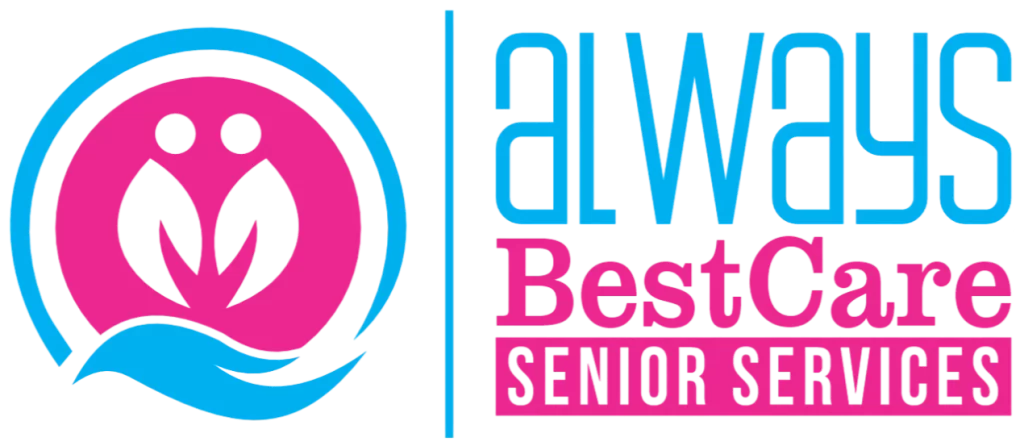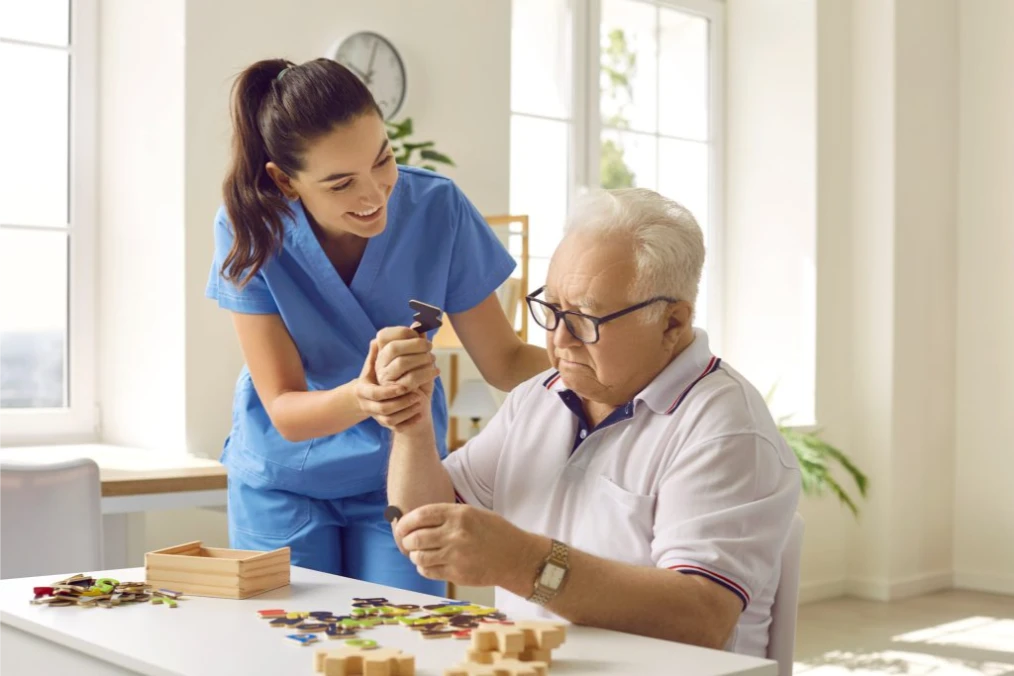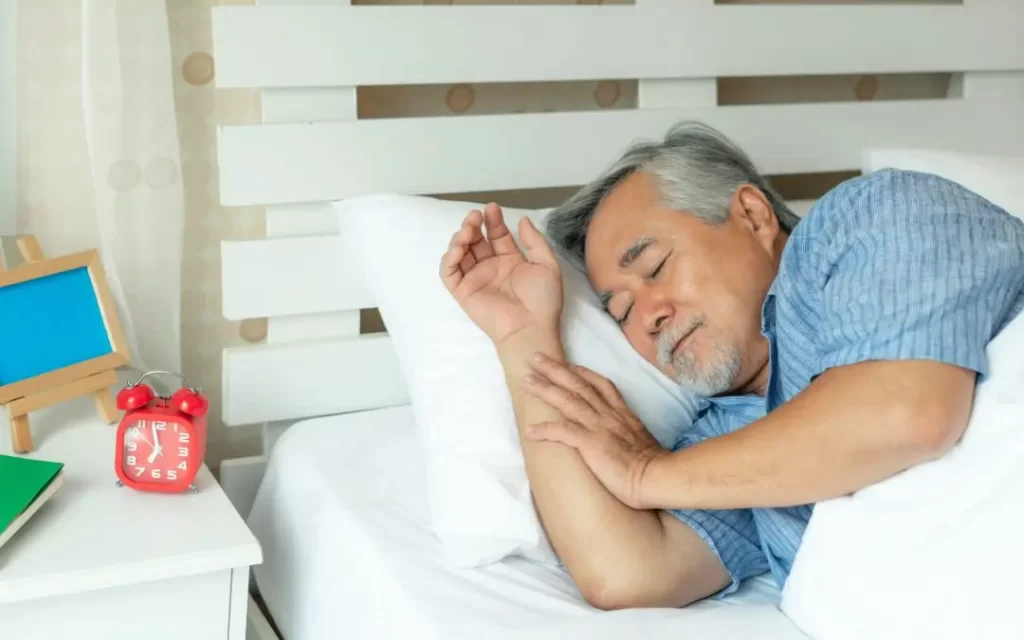As our loved ones age, it can sometimes be difficult to recognize when they need additional support. While it’s natural to want to care for them ourselves, there may come a time when professional home care is necessary to ensure their safety, well-being, and quality of life.
Understanding the signs that your loved one needs home care can help you make an informed decision about their care and provide the best possible support for them. In this blog post, we’ll explore some of the key indicators that may suggest it’s time to consider home care for your loved one.
1. Frequent Falls or Mobility Issues
One of the most significant indicators that someone may need home care is a history of frequent falls or difficulty moving around the house. As people age, they can experience a decline in balance, strength, and coordination, which increases the risk of falls.
Signs to look for:
- Struggling to get in and out of bed or chairs.
- Using furniture or walls for support while walking.
- Having difficulty walking without assistance.
- Frequent bruises or cuts that may suggest falls.
- Difficulty with stairs or other obstacles in the home.
If you notice these signs, it may be time to seek assistance in the form of home care. A trained caregiver can help with mobility assistance, reduce fall risks, and provide support for walking, standing, and general movement around the home.
2. Declining Personal Hygiene and Grooming
Maintaining personal hygiene is essential for physical health and emotional well-being, and a sudden decline in the ability to manage these tasks could be an early sign that your loved one needs help.
Signs to look for:
- Poor personal hygiene (e.g., not showering or brushing teeth regularly).
- Wearing dirty or mismatched clothes.
- Unexplained body odor or neglect of basic grooming (e.g., hair not combed, nails untrimmed).
- Difficulty with toileting or continence management.
If your loved one is struggling with personal care tasks, home care professionals can assist with bathing, grooming, dressing, and other hygiene-related activities while maintaining dignity and comfort.
3. Difficulty Managing Medications
As people age, they may develop chronic conditions that require medication management. Forgetting to take medications or taking them incorrectly can lead to serious health problems, especially if medications interact or are taken at the wrong time.
Signs to look for:
- Missing doses or taking medications incorrectly.
- Having large quantities of unused or expired medications.
- Confusion about which medications to take and when.
- Sudden changes in health or behavior due to medication issues.
A professional home caregiver can help organize and manage medications, ensure that your loved one takes them at the right times, and monitor for side effects, making medication management safer and more effective.
4. Declining Nutrition and Weight Loss
Proper nutrition is essential for seniors to maintain health and strength, and difficulty with eating and drinking can be a sign of physical or cognitive decline.
Signs to look for:
- Weight loss or malnutrition due to a lack of appetite or inability to cook.
- Difficulty swallowing food or choking.
- Unfinished or untouched meals.
- Limited variety in the diet, indicating poor nutrition.
- Forgetting to eat or drink regularly.
If your loved one is struggling to prepare meals or eat properly, a home care professional can help with meal preparation, grocery shopping, and ensuring that they receive nutritious, balanced meals to maintain their health.
5. Increasing Forgetfulness and Memory Problems
Cognitive decline, such as memory loss or confusion, is another strong indicator that your loved one may need additional care. While some forgetfulness is common with aging, significant memory issues can interfere with daily activities and safety.
Signs to look for:
- Forgetting important dates, appointments, or personal information.
- Getting lost or confused in familiar places, even at home.
- Difficulty managing finances or forgetting to pay bills.
- Repeating the same questions or stories over and over.
- A noticeable decline in problem-solving or decision-making abilities.
Memory problems can significantly impact safety and independence, and home care services can offer cognitive support, reminders for important tasks, and assistance with managing daily routines.
6. Social Withdrawal or Mood Changes
Mental and emotional health are just as important as physical health. If your loved one begins to withdraw socially or experience mood changes, it may indicate that they are struggling with depression, anxiety, or cognitive decline.
Signs to look for:
- Withdrawing from social activities, hobbies, or family gatherings.
- Increased feelings of sadness, irritability, or frustration.
- Signs of depression or emotional distress.
- Becoming easily upset or agitated.
- Lack of interest in things that once brought joy.
A home caregiver can provide companionship, encourage participation in activities, and help manage the emotional aspects of aging. They can also assist in identifying signs of depression or anxiety and help your loved one get the appropriate support.
7. Inability to Keep the House Clean and Maintain the Environment
As seniors age, it may become difficult for them to maintain a clean and safe living environment. This can lead to hygiene issues, safety hazards, or a decline in overall health.
Signs to look for:
- An untidy or dirty home that was previously well-kept.
- Piles of laundry, dirty dishes, or a cluttered living space.
- Neglected household chores, such as sweeping, vacuuming, or washing dishes.
- Deteriorating home maintenance or cleanliness, such as unmade beds or unclean bathrooms.
If your loved one is unable to manage housekeeping tasks, a home caregiver can provide assistance with light housekeeping, laundry, and organizing, ensuring their environment remains clean and safe.
8. Poor Judgment and Decision-Making
A decline in the ability to make sound decisions or manage everyday tasks can be a sign that your loved one needs extra help. When cognitive decline becomes noticeable, it can interfere with their ability to handle finances, driving, or other critical activities.
Signs to look for:
- Making poor financial decisions, such as giving away money or missing bill payments.
- Forgetting to lock doors or leave appliances on.
- Difficulty managing daily tasks like shopping, cooking, or getting dressed.
- Engaging in unsafe behaviors or poor judgment.
Home care providers can offer supervision and assistance to ensure that your loved one remains safe while making decisions, as well as helping them with tasks that may be too overwhelming or confusing.
9. Health Conditions that Require Ongoing Monitoring
Chronic health conditions such as diabetes, heart disease, or respiratory issues often require ongoing management. If your loved one is struggling to keep track of their condition or follow their care plan, home care can offer valuable support.
Signs to look for:
- Difficulty managing chronic conditions, such as checking blood sugar levels or administering insulin.
- Missed doctor appointments or medical treatments.
- Not adhering to prescribed treatments or therapies.
- Frequent hospitalizations or health issues that could be avoided with proper care.
A professional caregiver can help monitor vital signs, assist with treatments, and ensure that your loved one adheres to their healthcare regimen, reducing the risk of complications.
10. Desire for Independence but Lack of Ability to Maintain It
Your loved one may express a desire to remain independent, but their abilities may not align with their wishes. When the desire for independence outweighs the ability to stay safe, home care can offer a balance between support and autonomy.
Signs to look for:
- Declining ability to perform daily tasks, but resistance to asking for help.
- Difficulty managing transportation, grocery shopping, or running errands.
- Feeling overwhelmed by responsibilities like managing finances or making decisions.
- A desire to live independently but increasing difficulty doing so.
Home care services can provide the assistance your loved one needs while still encouraging their independence in daily life.
Recognizing the signs that your loved one needs home care can be difficult, but it’s crucial to address these needs as soon as they arise. Home care services offer tailored support to help seniors maintain their independence, improve their quality of life, and ensure their safety and well-being.
If you notice any of the signs mentioned above, it may be time to explore home care options. At Always Best Care, we are here to help you navigate this decision and provide compassionate, professional care for your loved one. Reach out to us today to learn more about how our services can help improve the lives of your loved ones and bring peace of mind to your family.








